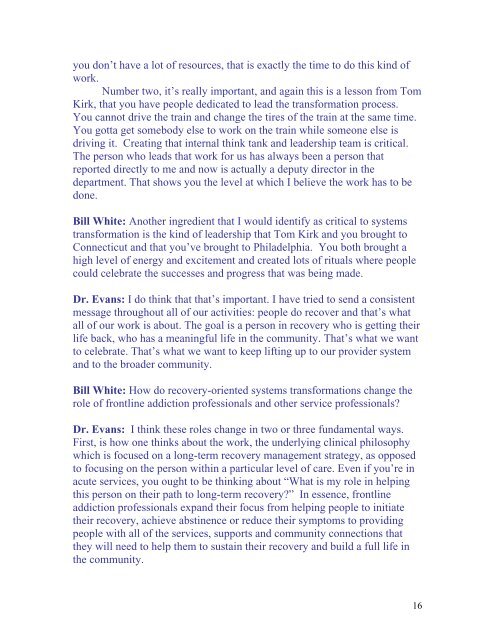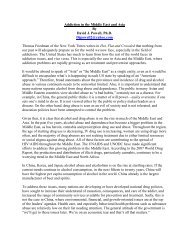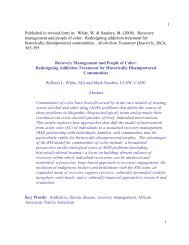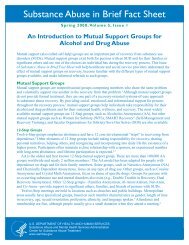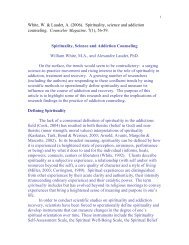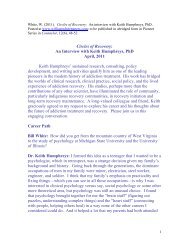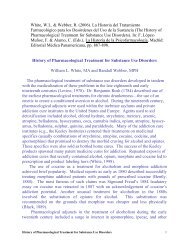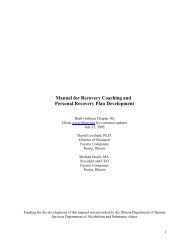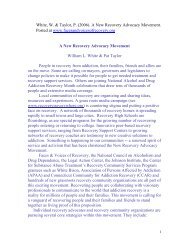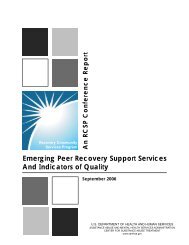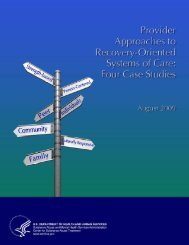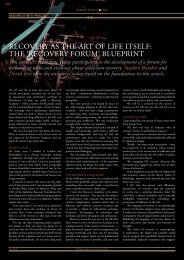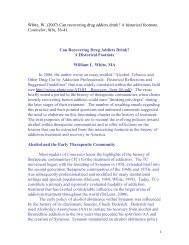An Interview with Arthur C. Evans, Jr., PhD Dr. Arthu - William L. White
An Interview with Arthur C. Evans, Jr., PhD Dr. Arthu - William L. White
An Interview with Arthur C. Evans, Jr., PhD Dr. Arthu - William L. White
- No tags were found...
Create successful ePaper yourself
Turn your PDF publications into a flip-book with our unique Google optimized e-Paper software.
you don’t have a lot of resources, that is exactly the time to do this kind ofwork.Number two, it’s really important, and again this is a lesson from TomKirk, that you have people dedicated to lead the transformation process.You cannot drive the train and change the tires of the train at the same time.You gotta get somebody else to work on the train while someone else isdriving it. Creating that internal think tank and leadership team is critical.The person who leads that work for us has always been a person thatreported directly to me and now is actually a deputy director in thedepartment. That shows you the level at which I believe the work has to bedone.Bill <strong>White</strong>: <strong>An</strong>other ingredient that I would identify as critical to systemstransformation is the kind of leadership that Tom Kirk and you brought toConnecticut and that you’ve brought to Philadelphia. You both brought ahigh level of energy and excitement and created lots of rituals where peoplecould celebrate the successes and progress that was being made.<strong>Dr</strong>. <strong>Evans</strong>: I do think that that’s important. I have tried to send a consistentmessage throughout all of our activities: people do recover and that’s whatall of our work is about. The goal is a person in recovery who is getting theirlife back, who has a meaningful life in the community. That’s what we wantto celebrate. That’s what we want to keep lifting up to our provider systemand to the broader community.Bill <strong>White</strong>: How do recovery-oriented systems transformations change therole of frontline addiction professionals and other service professionals?<strong>Dr</strong>. <strong>Evans</strong>: I think these roles change in two or three fundamental ways.First, is how one thinks about the work, the underlying clinical philosophywhich is focused on a long-term recovery management strategy, as opposedto focusing on the person <strong>with</strong>in a particular level of care. Even if you’re inacute services, you ought to be thinking about “What is my role in helpingthis person on their path to long-term recovery?” In essence, frontlineaddiction professionals expand their focus from helping people to initiatetheir recovery, achieve abstinence or reduce their symptoms to providingpeople <strong>with</strong> all of the services, supports and community connections thatthey will need to help them to sustain their recovery and build a full life inthe community.16


